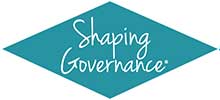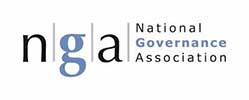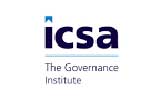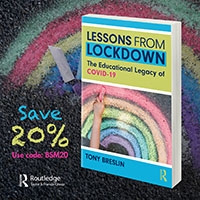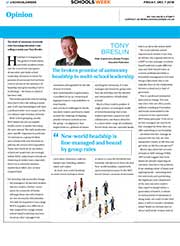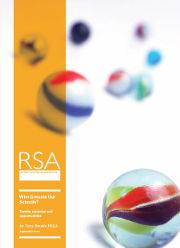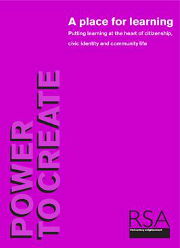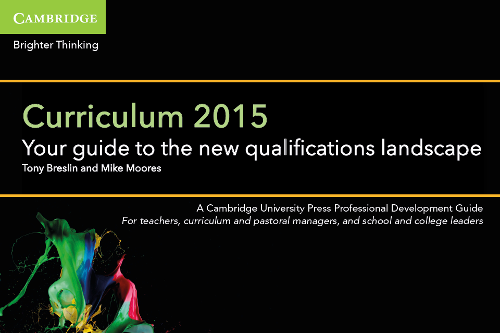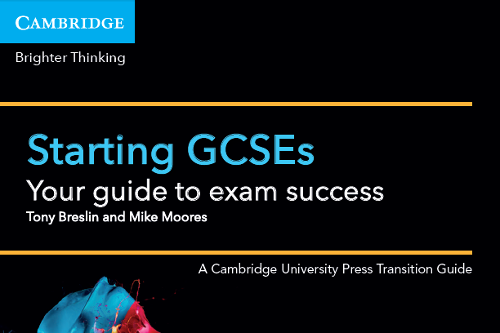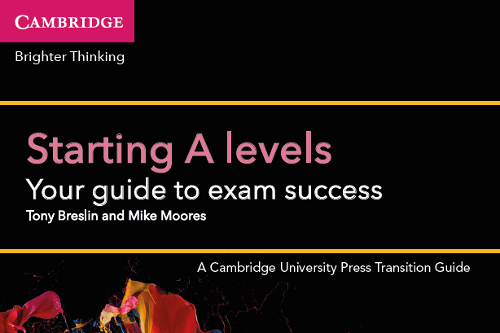












6.3% of the top 500 charities in Wales have BAME trustees, compared with 8% of FTSE 100 companies
Inclusive Boards, 2018

"How we exercise governance in our corporations, our hospitals and schools, and our charities is too important to be left to chance"
Cosette Reczek
Permuto Consulting
Transform Governance is a joint venture between Breslin Social Impact and Permuto Consulting


Need consultancy support? We have access to a range of specialists across sectors, across functions, and across the UK and beyond. Contact us to explore possibilities.
Capturing the lessons of lockdown
Saturday 28th November 2020

In this second post originally written for the Freedom To Teach site from Collins Educational, I draw on a core theme in my book, Lessons From Lockdown: the educational legacy of COVID-19, to argue that high quality educational research, including a major longitudinal study – or a suite of such studies – has to be part of the response of educationalists and researchers to the pandemic, especially if we are to capture the rich detail and the differently nuanced ways in which the pandemic has been experienced by pupils, parents and professionals.
Lockdown is likely to have a profound impact on our education system and, in particular, on how we think about and organise schooling. However, in the rush to get ‘back to normal’, we are in danger of ignoring the lessons of the pandemic: lessons about how children and young people learn; about how we most effectively assess this learning; about how teachers teach and the technologies that they use; about the social importance of schooling; and about how we successfully engage parents in the process of their children’s education.
The research for my forthcoming book, Lessons From Lockdown: the educational legacy of COVID-19 (Routledge, 2021), which involved over one hundred professionals, policy influencers, parents and pupils, reveals the range and variety of lockdown experiences and belies the simple binaries that continue to typify media coverage. Certainly, there were those for whom lockdown was challenging at every turn: children for whom school is a daily refuge from domestic violence, family discord, cramped housing and profound, unremitting poverty. There were others for whom the release from the institutionalisation of regular schooling brought a new freedom, an autonomy in learning and an opportunity to flourish. But for most, the experience was as variable as schooling itself can be. Thus, while I propose in the book a typology of ‘lockdown strugglers’, ‘lockdown survivors’ and ‘lockdown thrivers’, the truth is that many young people moved back and forward between these experiences as lockdown progressed. In short, schooling in lockdown did not deliver a single experience to all young people, or a consistent experience to most.
For parents, the experience of supporting home learning was similarly diverse: for many, it brought a new empathy for teachers, and all who work in schools, as they negotiated the challenges of mastering both new knowledge and new technology, motivating sometimes reluctant learners and managing a range of submission demands. For others, it opened up home-schooling, post lockdown, as a serious option – one hitherto unconsidered. For some, where time at home was enforced on whole families, lockdown allowed for the development and deepening of relationships, something that had sometimes been neglected in the cut and thrust of the daily pre-lockdown rat-race. And yet for others, the personal, social and economic challenges barely allowed home learning to take place. Tellingly, the National Centre for Domestic Violence reminded us that “abusers always work from home”. In this respect, there can be little doubt that, while lockdown didn’t cause many of the disparities and inequalities that it revealed, it certainly deepened those that already existed.
And for teachers and school leaders the rule book for day-to-day schooling was put to one side, with teachers seeking to master what was, for many, a new world of online learning and Zoom meetings, and Heads reinventing themselves as logistics managers, adding one-way systems, ‘bubbles’ and the paraphernalia of lockdown and partially open schooling to the already bulging compendium of school leadership. Indeed, it is more plausible to think of lockdown as consisting of several phases, rather than of a single period.
Thus, the lessons from lockdown are multiple and varied, even within single classrooms and staffrooms, and particular school communities. If we are to capture these, we need to think urgently about how they are captured, and in the here and now, rather than with the benefit, distortions and nostalgia of hindsight. For this reason, the Department for Education needs, as a matter of priority, to commission a major longitudinal study that tracks the impact of lockdown on current teaching and learning cohorts. In particular, such a study could track the impact of lockdown on the various classes of 2020 and 2021: those entering reception and Year 1; those entering the junior years; those starting secondary school and those studying for and sitting (or not sitting) GCSEs and A levels; those progressing to further and higher education; and those entering teacher education programmes and starting out on their teaching careers. The UK is blessed with a vibrant and active education research community and infrastructure and the cohorts are clearly identifiable and, seemingly unlike the virus, trackable.
Following these children, young people and adults into their early careers, and the current cohort of emergent teachers into middle and senior leadership roles would allow us to genuinely understand the impact of the virus, to build on the opportunities for re-thinking and reforming our schooling system, and to take swift mediating action where negative impacts emerge or appear at risk of doing so. Moreover, the insights from such a study might help to dissuade us from dashing ‘back to normal’ when the wiser option is a proper research-informed consideration of what the new educational normal needs to be, and what the post-lockdown schooling landscape needs to look like.
Tweet Share on Facebook